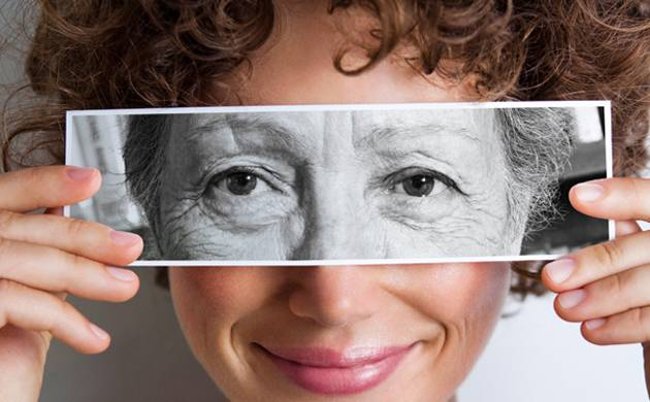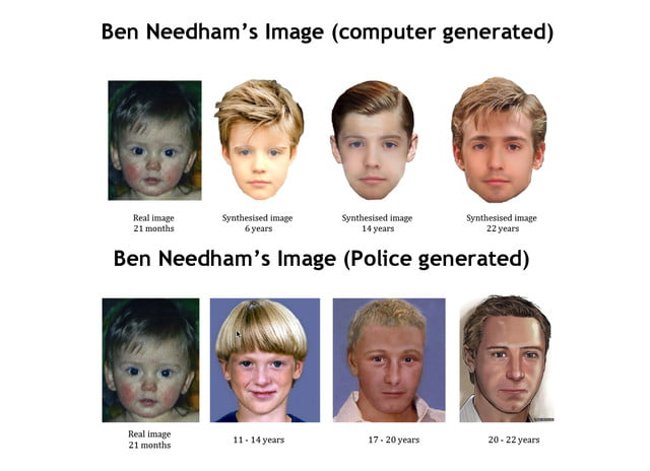Algorithms predicting human faces change over time, helping to find missing people
- Top 30 highest paid executives in technology circles
- 14 extremely "cool" inventions will take you to the future
- Fun science: Fortune telling by standard math algorithms does not require correction
The algorithm that predicts people's face changes over time will surely become a useful tool for finding lost relatives. Invite you to find out!
When a relative is lost, their friends and family will provide the police with a photo so that people outside the community can easily identify the missing person and report it to the local authorities. But in the case of cases that lasted for many years, the police took the image of the lost person at the time they disappeared, then " aged " the image to suit the current time. The results are very useful but these information are mostly guesswork and somewhat inaccurate.

This is what researchers at British University of Bradford are trying to improve with their latest project. The scientists developed a more accurate way of adding age to the face in the photo thanks to machine learning technology .
" During the study, we taught computers by showing them hundreds of thousands of photos of human faces and providing them with information about their age. Therefore, after recognizing the aging process of people, machines will process image data quickly, this is a technique that is both fast and effective ", Ali Maina Bukar , a member of the research team with expertise and analysis of face.

The algorithm developed by the team is capable of identifying nonlinear lines and muscle changes on the human face as a way of " learning about human age ." To analyze an image, this artificial intelligence system will take the information of the object, then apply the aging process that it has learned to create the correct image of the lost person after many years.
In the test, the researchers used this algorithm to show Ben Needham 's image - the missing baby in Kos Island, Greece in 1991 when he was only 21 months old. It is still unclear what Needham's whereabouts are, but this algorithm allows inspectors to have a chance to find this guy at the current age of 26. Based on the results obtained from the test papers, they believe that images made by this algorithm produce much more accurate data published by police.

Although in practice this algorithm was used to find a lost person for investigating agencies, Bukar said it is still in the development phase and needs further research. Currently, the machine learning technology of this algorithm only allows working with cropped images, which means that it cannot create images of hair of stray objects.
" We are working to improve its ability to reproduce its face and hair ," Bukar said. " Hopefully this project is accepted by the public and the police to apply it in practice. That's why we chose the famous object - Ben Needham - in my experiment. This team demonstrates the ability to help us find people we love but unfortunately lose . "
See more: 11 tips to solve Math simple but extremely interesting
Having fun!
You should read it
- ★ Algorithms arranged in data structures & algorithms
- ★ 15 common but misconceptions about science and technology
- ★ The mystery of the ghostly faces that happened to appear on the tree trunks startled many people
- ★ The unbelievable double-face cases in history
- ★ [Infographic] Future work when artificial intelligence gradually replaces people